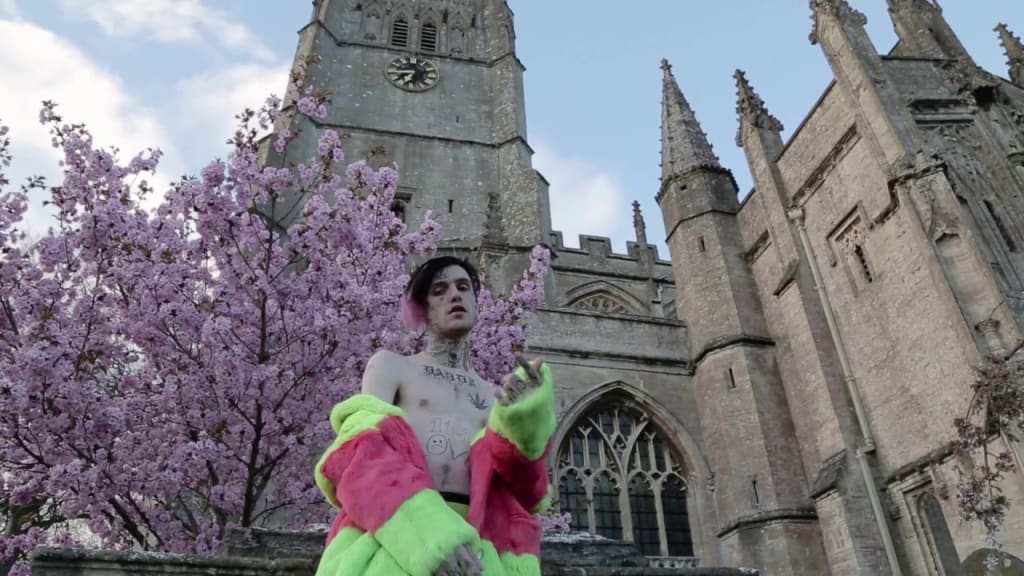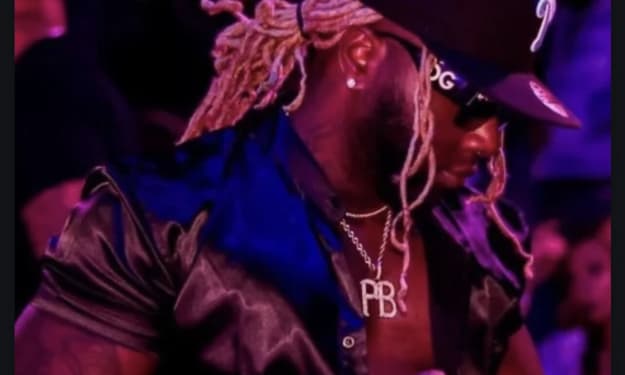Hip Hop Is Still Dope, Calm Down
Because when Emo meets Hip Hop, everybody wins.

It’s 2017, and I’ve just listened to a 12-year-old white Philadelphian by the name of Matt Ox bang out an autotune studded jam and I’ve heard it a handful of times. 5 Million plus YouTube views later, Hip Hop done changed, B. After another Soundcloud crawl I'm onto Global Dan (who looks like a million strung out emo kids from Jersey at a VFW hall show circa 2008). He loves lean, women, and being cool. I’m not going to go further, but if you’re interested in seeing what’s been up in young hip-hop recently, Gothboi Clique, $uicideboys, and the highly influential Astari YouTube Channel might like to have a word with you when they sober up.
Gothboy Clique and Mobb Deep (RIP Prodigy) seem to be far removed from each other, almost diametrically opposed in fact. Whereas Hip Hop in what’s referred to as the golden era (around ‘96 to lets say, 2000) was painted by unique voices telling stories of growing up (Mobb Deep, Wu-Tang Clan, Biggie), often in troubled times—6Dogs raps, “Tell my mom that I’m sorry” on “Flossing” with autotuned vocals, and it has 2 million views. More than 2 Million views and zero major label backing. Can someone get the Emo Revival critics on the phone here?
Is Hip Hop buried? Is the content a reflection of a societal development? Aren't all the emo kids in their 20s now? Has Yung Lean killed hip hop?
Bruh, chill. Of course not, to all those questions. Putting aside the aesthetic, the radically different racial associations and sonic qualities, it’s the same thing. At hip hop's core, it’s young people speaking to their experiences with hyperbole and fantasy in the same vein as their predecessors. Hip Hop's golden era shattered reservations to whether or not this historically black genre could conquer the market. In a sense, without the golden era, Slug Christ is still fronting Grindcore bands. Everyone is Def Jam's baby, sort of.
And that’s what it is, it's diversity. Bandcamp, Soundcloud, and YouTube in conjunction with easy access music processing software have opened the game up—you don’t need a huge budget or label backing anymore, so the voices are coming from everywhere (and then moving to LA 'cause it's lit). The diversity of hip hop means every pair of ears entering music can go from leaders like Lil Yachty and move in the direction they feel represents or appeals to them, tumbling through the depths of Soundcloud and YouTube where the new energy has found refuge.
And that’s that. Hip Hop's essence hasn't actually changed at all; the only thing that’s changed is that now every subculture has access. Can it be derivative and overly pop-y? Sure. Is this current wave going to take the helm forever? Probably not. Is this all potentially very problematic? Well, obviously. But these are kids, and young people have always pushed music forward. Welcome to Hip Hop in 2k17, where diversity has taken a turn few would've expected, and that's okay.
Besides, Ready to Die, you do realize The Notorious BIG was a 'lil emo too, right?
Gang.
About the Creator
Triple Decker Sandwich
I was in the bleachers now you know I'm shot calling






Comments
There are no comments for this story
Be the first to respond and start the conversation.